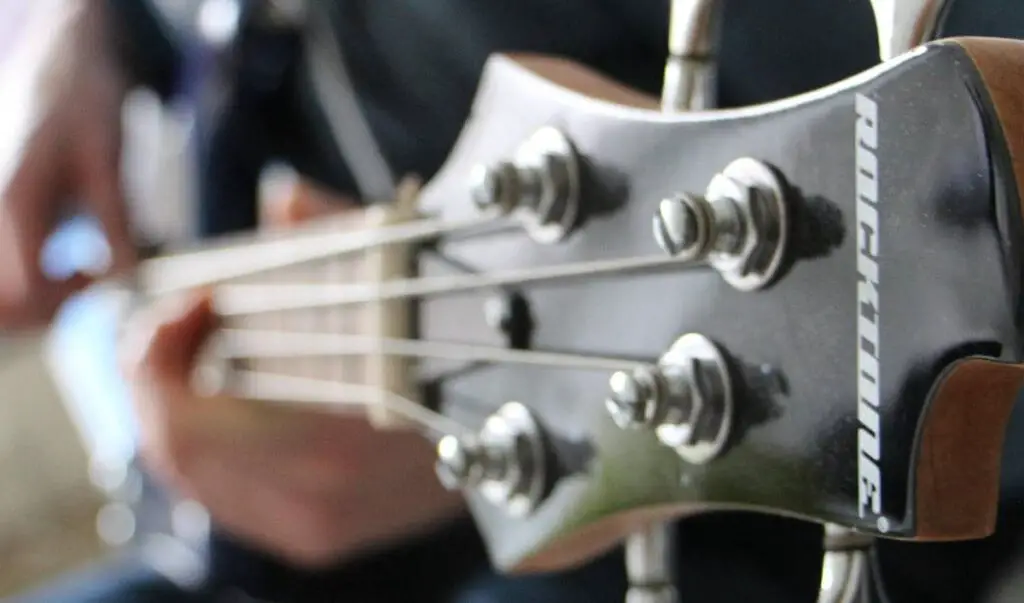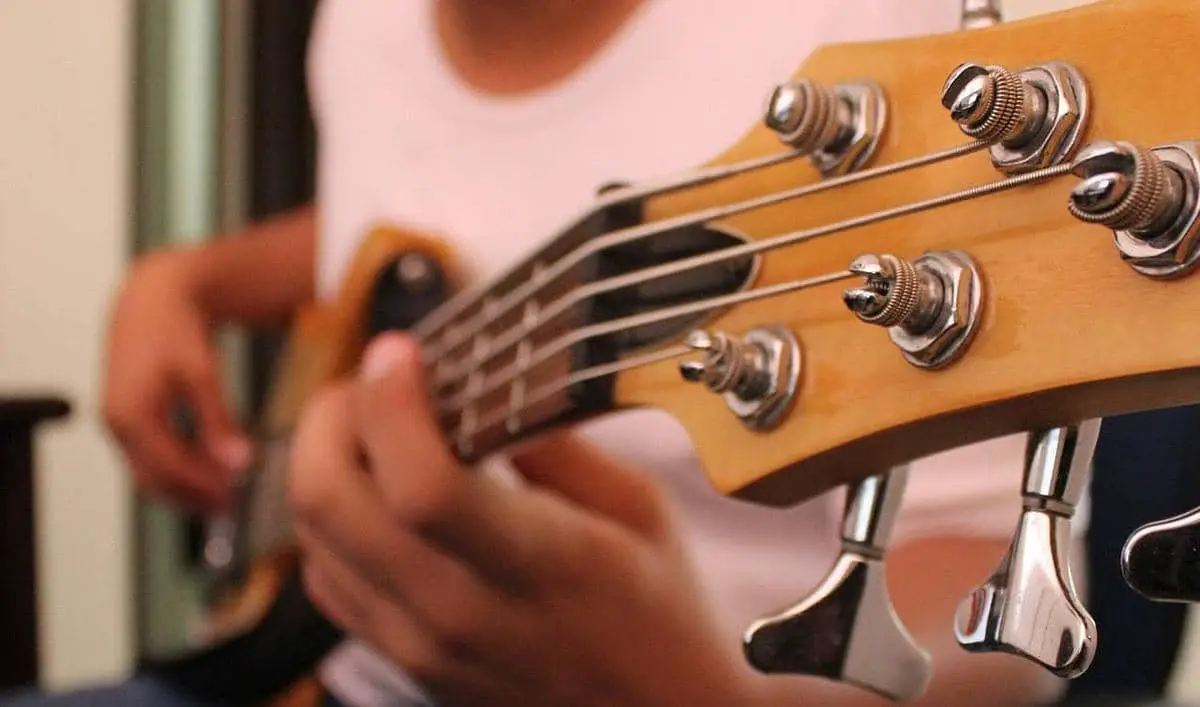The Bass guitar is the backbone in every band that knows what they are doing. In most genres, the bassist is an unsung hero that holds the other instruments together. Thus, playing bass in a band is fulfilling, but is it fun to play bass alone?
Most bassists find playing Bass alone a fun experience. Playing alone gives you the opportunity to experiment, jam, and evolve on the Bass guitar in ways that would be unfitting in a band setting.
A common misconception is that due to the supportive role of the bass in a band it is a boring solo instrument.
This is far from the truth.
I am going to share my experience with playing bass alone and how I`ve had a lot of fun with it. You are also about to see some examples of how far the bass guitar can be pushed as a solo instrument.
Can you play bass solo?
Let`s start of by clarifying what playing bass alone means:
You can play the bass guitar on your own without any issue. The bass can be used to jam with or without a backing track, as a solo instrument, or as a composing tool without the need for a band.
When I got my first bass 15 years ago I didn`t have anyone to play with at the time. Since then I have played in a fair share of bands across multiple genres.
I have a lot of fond memories of playing in bands with my friends. Still, the most fun I ever had playing the bass was the first couple of months playing bass solo. There was always a new song or a new technique I could learn, and I remember playing till my fingers turned blue.
Contrary to what many people seem to believe, playing bass by yourself is thus not boring or limiting. It is an experience that offers a lot of fun and opportunities to be creative while developing your own style.

Is it fun to play bass alone?
A lot of contemporary music has simple bass lines. Nailing the basics and learning to hold a simple groove is essential for all bassists. However, this doesn`t mean that that playing bass alone means playing root notes by yourself for hours on end.
Depending on the genre, advanced bass techniques are usually best applied in small doses. These techniques still take a lot of time to get good at. Here`s just some of the things you can have fun practicing with while playing alone:
- Slapping and popping
- Tapping
- Octave tapping
- Solos
- Melodic lines (See Geddy Lee of Rush for some prog-rock or Matt Freeman of Rancid for some Punk-Rock)
- Playing chord progressions and strumming
- Incorporating chords into your bass lines
- Sweep picking
- Hammer-ons and pull-offs
- Slides
- Ghost notes
- Harmonics
- Mastering different turnings
And the list goes on. Mastering these techniques is fun in its own right. The most fun and fulfilling thing about it though is how it makes you a more flexible and creative bass player.
For every new technique learned you will find ways to change up and improve your playing. I have found that this makes progress more noticeable and it has made me excited to further explore what I can do with the bass. This type of experimentation is the core of what makes bass such a fun solo instrument.
Here is an example of Charles Berthoud playing a solo over a simple drum groove. He uses many of the techniques I mentioned above, and he does an amazing job of showcasing just how fun solo bass can be:
Is Bass a good solo instrument?
The musical range of a 4-string bass is limited, which makes it a poor solo instrument in a band setting. However, the bass guitar works well as a solo instrument on its own and works especially well when accompanied by a drum beat.
Due to the lower range and frequencies of the bass, a bass solo is going to clash with guitars and pianos. Instruments with higher ranges will naturally feel like they are on top of the mix.
Thus, if you have a guitar or piano playing during an ottherwise great bass solo, this will typically make the song sound directionless. The instruments will sound like they are fighting for space, rather than creating space for each other.
On the other hand, bass as a solo instrument can be both beautiful and groovy in the right context. Usually, this means completely solo, over a drum beat, or accompanied by non-intrusive instrument, such as an ambient synth pad.
My two favorite solo bass artists are Victor Wooten and Jaco Pastorius. They both bring a lot to the table, but in my eyes, Wooten excels at creating extremely complex yet groovy slapping solos. Pastorius on the other hand excels at making beautiful melodies and incorporating harmonics.
While both have been involved in several musical projects, they are mainly known as solo bass players.
These guys have proven that not only is bass a great solo instrument but that it is possible to build a career as a solo bass player.
For a great example of this, watch this video of Wooten that shows off a little bit of everything:
Conclusion
As you have seen above, not only does the bass work well as a solo instrument when used right, but it can also be incredibly fun.
There are a lot of advanced techniques that you can learn on your own and use both on your own and in a band setting. This will make playing bass alone fun, as well as make you a more proficient solo bassist.
The bass guitar is not designed to play solos in a band setting, but it works well as a solo instrument on its own, or with a drummer.
If you are considering picking up the bass, but are worrying about not having anyone to play with, I highly recommend picking it up anyway.
The sky is the limit at what you can do as a solo bassist, and everything you learn can be applied in a band setting at a later point in time.

